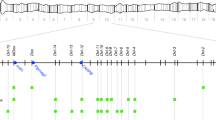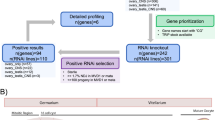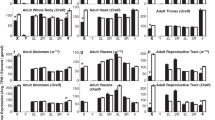Abstract
THE discovery that certain human abnormalities have a chromosomal basis has stimulated renewed interest in the phenomenon of non-disjunction. Theoretically, non-disjunction may occur in both the male and female germ cells at either the first or second meiotic division and may give rise to a considerable variety of non-disjunctional types in the progeny. In practice, only non-disjunction occurring at the first meiotic division in oocytes has so far been studied in Drosophila. The present communication reports the occurrence of spontaneous non-disjunction of the sex-chromosomes in Drosophila males.
This is a preview of subscription content, access via your institution
Access options
Subscribe to this journal
Receive 51 print issues and online access
$199.00 per year
only $3.90 per issue
Buy this article
- Purchase on SpringerLink
- Instant access to full article PDF
Prices may be subject to local taxes which are calculated during checkout
Similar content being viewed by others
References
Lamy, R., Drosophila Information Service, 23, 91 (1948).
Lima-de-Faria, A., Science, 130, 503 (1959).
Author information
Authors and Affiliations
Rights and permissions
About this article
Cite this article
KELSALL, P. Non-disjunction of the Sex-chromosomes in the Male of Drosophila melanogaster . Nature 190, 1035–1036 (1961). https://doi.org/10.1038/1901035a0
Issue date:
DOI: https://doi.org/10.1038/1901035a0



